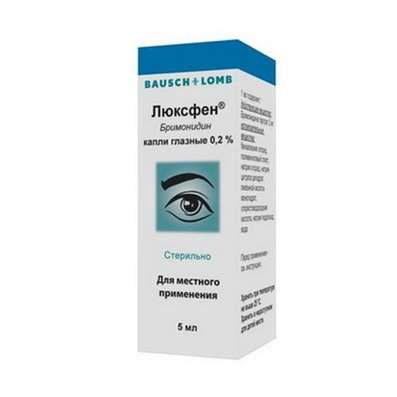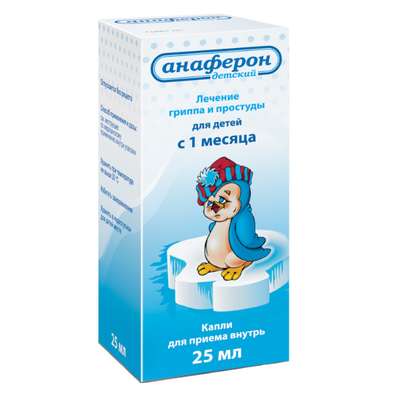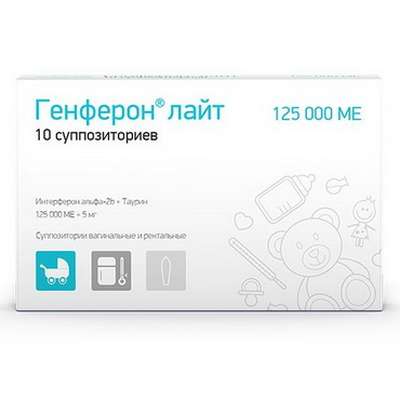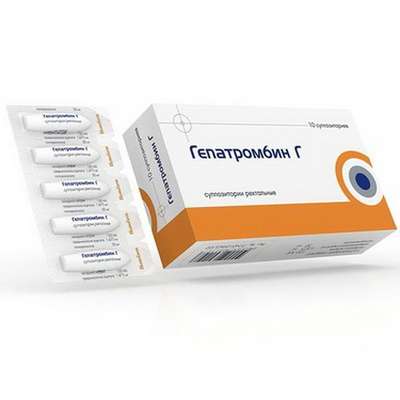Instruction for use: Diazepam Ratiopharm
I want this, give me price
Trade name of the drug – Diazepam Ratiopharm
Active substance: Diazepamum (genus. Diazepami)
Chemical name: 7-Chloro-1,3-dihydro-1-methyl-5-phenyl-2H-1,4-benzodiazepin-2-one
Dosage Form: tablets, solution for injection
Composition of Diazepam Ratiopharm
1 ml solution for injection contains 5 mg of diazepam; in multiples of 5 vials of 1 ml.
1 tablet - 10 mg or 5; in blister 10 pcs., in box 1, 2 or 5 blisters.
Pharmacotherapeutic group: Anxiolytics, antiepileptics
ATX Code
N05BA01 Diazepam
The nosological classification (ICD-10)
F10.2 alcohol dependence syndrome: Alcoholism; Alcohol addiction; posiomania; Dependence on alcohol; dipsomania; drunken state; alcohol abuse; Ideatornoy violations in alcoholism; Quarterly booze; Obsessive craving for alcohol; Neurotic symptoms of alcoholism; Craving for alcohol; Psychoorganic syndrome in chronic alcoholism; Reduced craving for alcohol; Saint Martin's evil.
F10.3 abstinence: Alcohol withdrawal syndrome; abstinence symptom; Abstinence syndrome in alcoholism; abstinence; alcohol abstinence; alcohol withdrawal; Alcohol abstinence; Alcohol withdrawal syndrome; withdrawal disorder; withdrawal state; alcohol withdrawal syndrome; withdrawal syndrome; The syndrome of alcohol abstinence; alcohol withdrawal syndrome; Status of abstinence.
F20 Schizophrenia: Dementia praecox; Bleuler's disease; Sluggish schizophrenia; Sluggish schizophrenia apatoabulicheskimi with disabilities; Exacerbation of schizophrenia; The acute stage of schizophrenia with excitement; The acute form of schizophrenia; Acute schizophrenia; Acute schizophrenic disorders; An acute attack of schizophrenia; Psychosis discordant; Schizophreniform psychosis; Dementia early; Febrile form of schizophrenia; Chronic schizophrenia; Chronic schizophrenic disorders; Cerebral organic deficiency in schizophrenia; Schizophrenic state; Schizophrenic psychosis; Schizophrenia.
F41 Other anxiety disorders: anxiety Relief; Nonpsychotic anxiety disorders; An alarm condition; Anxiety; Disturbingly suspicious condition; Chronic anxiety; Sense of anxiety.
F48 Other neurotic disorders: Neurosis; Neurological diseases; Neurotic disorders; Neurotic state; Psychoneurosis; Anxious-neurotic state; Chronic neurotic disorders; Emotional reactive disorder.
G24 Dystonia: Violation of muscle tone.
G40 Epilepsy: Atypical seizures; atonic seizures; Large seizures; Large seizures in children; Large seizures; generalized absence seizures; Jacksonian epilepsy; Diffuse large seizure; diencephalic epilepsy; Cortical and non-convulsive forms of epilepsy; Primary generalized seizures; Primary generalized seizures; Primary generalized seizure; Primary generalized tonic-clonic seizure; Piknoleptic absence; Repeated seizures; Fit generalized; Fit convulsive; Refractory epilepsy in children; Sophisticated seizures; Mixed seizures; Mixed forms of epilepsy; convulsive states; seizures; Spasmodic state; Convulsive forms of epilepsy; Epilepsy grand mal; seizures.
G47.0 Disorders of falling asleep and maintaining sleep [insomnia]: Insomnia; Insomnia, especially difficulty falling asleep; desynchronosis; Prolonged sleep disturbance; Difficulty falling asleep; Short-term and transient insomnia; Short-term and chronic sleep disorders; Short or shallow sleep; Violation of sleep; Disturbed sleep, especially in the phase of falling asleep; Infringements sleep; sleep disturbances; Neurotic sleep disturbance; Shallow superficial sleep; shallow sleep; Poor quality of sleep; Night awakening; sleep Pathology; Postsomnic violation; transient insomnia; Trouble falling asleep; Early awakening; Early morning awakening; Early awakening; sleep disorder; somnipathy; persistent insomnia; difficult to fall asleep; difficulty falling asleep; Difficulty falling asleep in children; persistent insomnia; Worsening sleep; Chronic insomnia; Frequent night and / or early morning awakening; Frequent nocturnal awakening and a sense of the depth of the non-sleep; Night waking.
L30.9 Dermatitis, unspecified: Allergic complicated by secondary bacterial infection; Anal eczema; Bacterial diaper rash; Varicose eczema; Venous dermatitis; Inflammation of the skin; Inflammation of the skin in contact with plants; Inflammatory skin disease; Inflammatory skin disease; Inflammatory diseases of the skin; Inflammatory skin reactions; Inflammatory processes of the skin; Hypostatic dermatitis; The fungal eczema; Fungal dermatoses; Dermatitis; Dermatitis stagnant;Dermatitis and eczema of the anus; Dermatitis sharp pin; Perianal dermatitis; dermatoses; Dermatoses of the scalp; Psoriasis-forme dermatosis; Dermatoses with persistent itching; dermatoses; Itchy dermatoses; Other pruritic dermatoses; Significant eczematous manifestations; Itching at dermatoses; Itchy eczema; Itchy dermatitis; Itchy dermatitis; Itching dermatoses; True eczema; Skin reaction to insect bites; Itching at the dermatosis; Constitutional eczema; Weeping eczema; Weeping inflammatory skin disease; Weeping infectious and inflammatory skin disease; Non-allergic dermatitis; Nummulyarnaya eczema; Narrow itchy dermatitis; Acute contact eczema; Acute inflammatory disease of the skin; Acute dermatosis; Acute severe dermatosis; Perianal dermatitis; The superficial dermatosis; Subacute contact eczema; Simple dermatitis; Professional dermatitis; Psychogenic dermatosis; Molar dermatitis of newborns; Pustular eruptions; Irritation and redness of the skin; Low-weeping eczema; Dry atrophic eczema; Dry eczema;Toxic dermatitis; Ear eczema-like dermatitis; Chronic eczema; Chronic Medicine; Chronic dermatoses; Chronic widespread dermatosis; Scaled papular dermatitis; Eczema; Eczema anal area; Eczema of the hands; Eczema contact; Eczema Lichen-lated; Eczema nummulyarnaya; Eczema is acute; Eczema is an acute contact; Eczema subacute; Eczematous dermatitis; Eczema-like rash; Ekeema exogenous; Endogenous eczema; Gluteal dermatitis.
R45.1 Restlessness and agitation: Agitation; Anxiety; explosive excitability; The internal excitation; Excitability; Excitation; Excitation sharp; psychomotor excitement; hyperexcitability; motor stimulation; Relief of agitation; jitters; restless; Night concern; The acute stage of schizophrenia with excitement; Acute mental stimulation; paroxysm excitation; overexcitement; erethism; Increased nervous irritability; Increased emotional and cardiac excitability; Increased arousal; hyperphrenia; Psychomotor agitation; Psychomotor agitation; Psychomotor agitation in psychosis; Psychomotor agitation epileptic nature; psychomotor paroxysm; psychomotor seizures; excitation Symptoms; The symptoms of psychomotor agitation; Status agitation; Status anxiety; excitation condition; Status of high concern; Condition of psychomotor agitation; anxiety states; excited states; anxiety states with somatic diseases; feeling of excitation; Feeling restless; Emotional arousal.
R45.7 State of emotional shock and stress, unspecified: Exposure to stressors; Exposure to extreme situations; Long-term emotional stress; Neuropsychiatric stress; occupational stress; Psychological stress at interrail; Psycho-emotional overload and stress; Psycho-emotional tension in stressful situations; emotional stress; stress condition; Stress; The stress load; stress state; stressful situations; stress state; The stresses of everyday life; Chronic stress.
Z100 * CLASS XXII Surgical practice
Pharmacological Properties of Diazepam-ratiopharmPharmachologic effect
Mode of action - anxiolytic, muscle relaxant, anxiolytic.
Indications for Diazepam-ratiopharm
Neuroses, psychopathy, schizophrenia, insomnia, epilepsy, pruritic dermatoses.
Contraindications for Diazepam Ratiopharm
Hypersensitivity, renal failure, myasthenia gravis, angle-closure glaucoma, pregnancy.
Diazepam Ratiopharm Dosage and Administration
The dosage is determined individually as a rule - 5-10 mg 2-3 times a day (maximum daily dose - 60 mg). Children with febrile convulsions, depending on age - 2-10 mg / in slowly.
Inside, children from 1 year to 3 years - 1 mg, 3 to 7 years - 2 mg, 7 years and older - 5.3 mg (daily doses are, respectively, 3 mg, 6 mg, and 8-10 mg for children older age daily dose can be increased to 14-16 mg).
Side effect of Diazepam Ratiopharm
Dizziness, drowsiness, slow reactions, decreased mental and motor activity, muscle weakness, ataxia, dry mouth, dyspepsia, nausea, diarrhea, dyspnea, bronchospasm, galactorrhea, hyperprolactinemia, and allergic reactions.
Shelf life
solution for intravenous and intramuscular administration of 5 mg / ml - 2 years.
5 mg tablets - 7 years.
10 mg tablets - 7 years.
Do not use beyond the expiration date printed on the package.
Storage conditions of Diazepam Ratiopharm
The temperature is not above 25 ° C.
Keep out of the reach of children.
Conditions of supply of Diazepam Ratiopharm from pharmacies
On prescription.

 Cart
Cart





